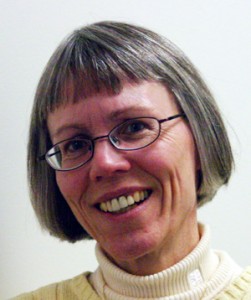By Barb Arland-Fye
A rabbi’s thoughtful reflection on embracing forgiveness in this new year caused me to contemplate the times I have both sought and given forgiveness.

I remember confiding to a Sister years ago that I didn’t think I was a very good mother to my then-only child, Colin, who was about 5 years old and exhibiting some trying, autistic behaviors. She advised me to think about the many moments that a day contains. Each failed moment is a moment in which I do only what I am equipped to do. But there are many other moments in a day, many opportunities to do better. Concentrate on those moments. Without saying so, Sister gave me permission to forgive myself for falling short in my relationship with a son I loved — and still love very much.
There’ve been plenty of opportunities to seek forgiveness since then from Colin, other members of my family, friends, co-workers and acquaintances. Just last weekend a family member and I vented our frustration in anger with both of us needing to seek the other’s forgiveness, but reluctant to do so.
God has a way of reminding me, though, that I am still a pilgrim on the journey. “Apologize,” I heard God say in a whisper. That requires humility, a virtue I am learning slowly and painfully.
“Forgiveness is the art of living life with clarity and humility moment to moment. Forgiveness requires you to know that everything has its time; that everything that can arise will arise,” observes Rabbi Rami Shapiro, PhD., in an article titled: Clean Slate for the New Year? Embracing Forgiveness. “And that knowing leads us to the second key to forgiveness: you are rarely the target,” said Rabbi Rami, who teaches religious studies at Middle Tennessee State University and directs Wisdom House Center for Interfaith Studies in Nashville. In other words, the family member and I who vented our anger toward each other did not set out to hurt each other.
As the rabbi sees it, “the actors are locked into their scripts and the drama unfolds as you get hurt.” I’m not sure I agree totally with the rabbi; I see the sinful nature of human beings as the main reason why we hurt one another.
But another observation the rabbi makes resonates with me: “Once we realize that most of the hurts we receive and even cause are unintended, that we are all doing the best we can with what we have to work with at any given moment, forgiveness is choiceless.”
Years ago my mom suggested reciting the rosary as a way to calm down when I’m stressed out. As usual, mom was right! Saying the rosary last weekend seemed cathartic and helped make me more receptive to responding to God’s whisper.
Following the angry exchange with my family member, I apologized first — even though I still felt aggrieved. The family member apologized in return. Both of us had lashed out at each other because of anxiety. We want the best for each other, but sometimes we fail to communicate what we truly desire. That awareness is another step forward for a pilgrim continuing on the journey.








